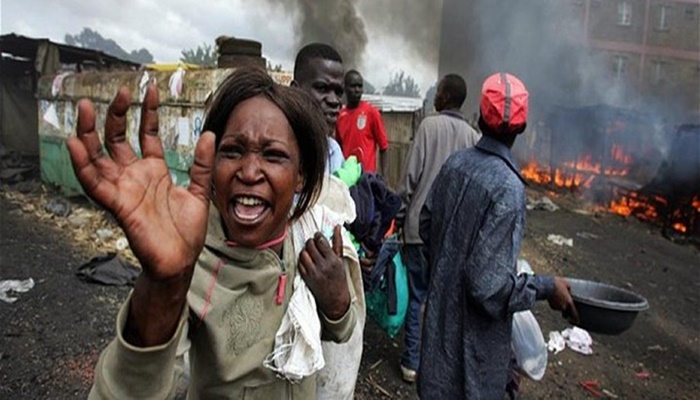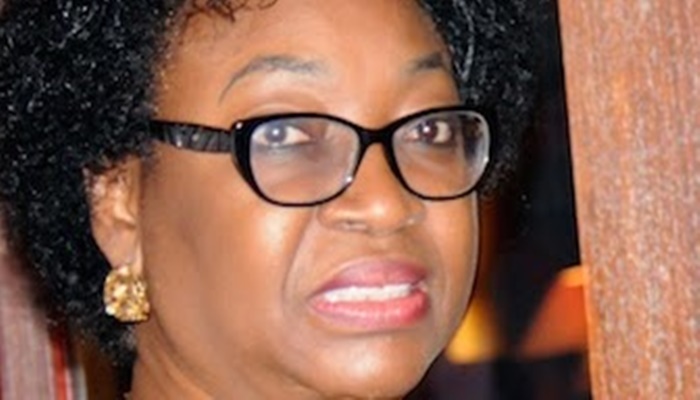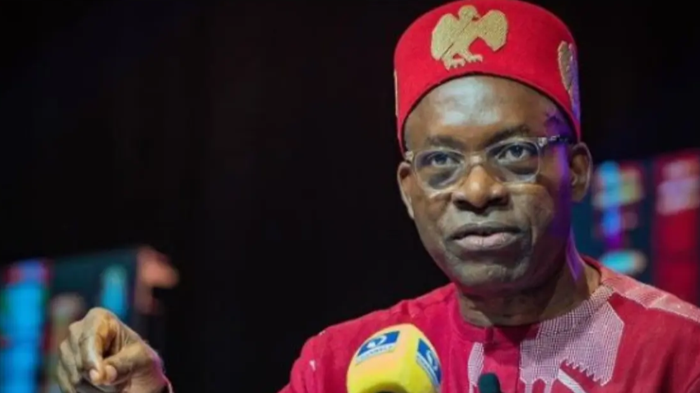
Two institutions, International Republican Institute, IRI, and National Democratic Institute, NDI, yesterday, called for urgent national conversation to harmonise recommendations of various committees on electoral reforms.
This is even as Head of European Union Election Observer Team, Ambassador, Ketil Karlsen, yesterday, said the body contributed over 100 million euro to support electoral reforms in Nigeria.
But All Progressives Congress, APC, in a swift reaction, said the reports of the international observers should be ignored, saying: “We are no kids, we can take care of ourselves.’’
However, Peoples Democratic Party, PDP, on its part, said the report by NDI and IRI warning of possible apathy in future elections showed that the 2019 presidential poll was rigged in favour of President Muhammadu Buhari.
According to the two US groups, the essence is to implement them to avoid facing citizens opting out of future elections.
They warned that if urgent steps were not taken and the citizens begin to opt out of electoral process, more negatives things could happen to Nigerian democracy.
The IRI and NDI, which issued the warning, during a presentation of the report of the 2019 general election in Nigeria, however, said the elections fell below the expectations of many people when compared to the previous elections held in 2011 and 2015.
The report was presented by the NDI’s Senior Associate for Africa and Regional Director for Central and West Africa, Dr Christopher Fomunyoh, and the Acting Regional Director for Africa Division at the IRI, Elizabeth Lewis, at Transcorp Hilton, Abuja.
Fomunyoh, who specially asked for implementation of recommendations around the 2019 general elections, expressed fears that citizens might lose confidence and become very disaffected with future electoral process.
He said: “I will just echo the response of my colleague, Lewis. I will on top of that also add that both of our organisations feel very fortunate to being accepted by Nigerians and adopted by Nigerians as viable partners in helping to strengthen democracy in this country.
“Both of our organisations are strong, often strong by the promise of Nigeria because we see the vitality of this country in human capital and material resources. We know what Nigeria can contribute to Nigerian people, to Africa and to the world.
“Let’s not forget that projection of world population do show that by 2050, Nigeria may move from being the 7th to the 3rd most populous country in the world. Nigeria has a lot to offer.
“But at the same, time we are confounded by the fact that the country doesn’t seem to be punching at the level of its weight when it comes to issues of electoral practices and good governance.
“A lot has been accomplished since the transition in 1999 but there are still a lot that needs to be done. And I think once the national conscience is awaken to the fact that a lot needs to be done to give citizens confidence that their votes counts, that elections matter, that democracy matter, then we will be at that juncture we could all go home and celebrate that the country has grown to a point of no return. Ringing the alarm bell
“The reasons we are so adamant about ringing the alarm bell that the recommendations around the 2019 elections should be implemented is the fact that we are fearful that if those recommendations are implemented, the citizens don’t see that the political leaders are cognisant of shortcomings in the electoral process.
“Citizens may begin to opt out and will become very disaffected with the electoral process. And that means that other more negatives things could happen to the Nigerian democracy if the citizens opt out of the process.”
The IRI/NDI in their report also blamed the political class, lack of internal democracies in political parties as well as security operatives for some of the challenges experienced during the 2019 general elections.
Noting that INEC made arrangements for a credible poll, the groups said the political class deployed high-handed tactics, including vote buying, unguarded political statements and violence, to undermine the process.
They commended INEC for introducing simultaneous voting, posting of results at polling units, improved voter-verification technologies and a more robust review and disciplinary process for INEC staff and enhancement of ballot secrecy as well as measures to reduce vote buying.
Electoral reform process
While making a case for pursuit of a comprehensive, inclusive and expeditious electoral reform process, the report said: “This process should draw upon recommendations from Nigerian-led reform initiatives such as the Uwais Commission (2008) and the Nnamani Committee (2017).
“These reforms should also address the challenges and lessons learned from the 2019 electoral cycle and should include the creation of appropriate institutions to oversee political parties and prosecute electoral offences, responsibilities that impede INEC’s focus on election administration.
“These reforms should be pursued immediately and completed early enough to allow changes to be fully implemented before the 2023 general elections
“Part of recommendations is to establish time limits for the adjudication of pre-election petitions to ensure that judgments are rendered before election day and early enough not to interfere with INEC’s election preparations.
“Reduce the length of time allowed for post-election disputes so the majority of petitions can be adjudicated fully before those rightly elected assume office. This might require re-examining the electoral calendar.”
Presidency insists Buhari won 2019 polls; faults NDI, IRI reports
Meanwhile, the Presidency, yesterday, insisted that President Buhari won the February 23, 2019 presidential election with a clear margin.
The Presidency also defended the suspension of former Chief Justice of Nigeria, CJN, Justice Walter Onnoghen, by Buhari over the controversy surrounding his Asset Declaration Form before the last general elections
Senior Special Assistant to the President on Media and Publicity, Mallam Garba Shehu, in a statement expressed reservations over the joint report of IRI and NDI on the 2019 general elections in Nigeria and recommendations for the 2023 general elections.
He said it was indisputable that Buhari defeated his main opponent, Alhaji Atiku Abubakar, of PDP, with a margin of 14 per cent.
According to him, the most important thing in an election is that it reflects the will of the people, which in the circumstances was acknowledged to have been a success by ECOWAS Observer Mission and YIAGA AFRICA whose parallel vote tabulation verified INEC’s presidential election result as announced.
The presidential aide said: “We have developed a tradition of improvements in our electoral process through enforcement of our electoral law, which resulted in the prosecution and conviction of electoral officers that were found wanting in compromising our electoral process.
“We, however, agree notwithstanding, that there are improvements that must be made in the process for the future. The sheer size, terrain and remoteness of certain regions do pose serious logistical challenges.
“They also pose a problem for electoral process”
-Vanguard






